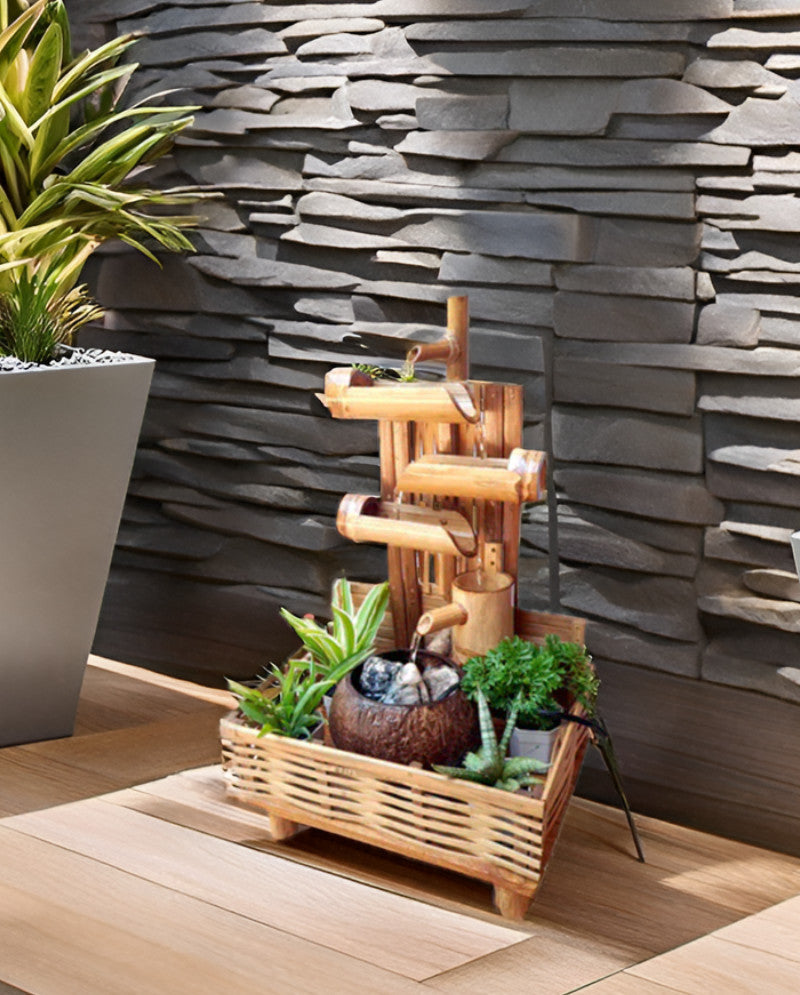
Secrets to awesome Organic Gardening
Going Organic is the new trend. From Shopping Organic food to Organic gardening, we've progressed a long way towards conscious living. Consuming Organic food prevents usage of synthetic or chemical pesticides in both vegetables and fruits- thereby giving your health an overall boost. While you can actually buy Ready-made Organic vegetables in the market, growing your own Organic garden really gives you extra-satisfaction! Plus, Growing your own garden can actually unearth several benefits in the context of your mental well-being, physical well-being and is a wonderful hobby to be pursued!
If you are someone who is Interested in growing your own Organic garden and don’t know where to start, we’ve got you covered.
Preparing the soil:

Soil texture and Quality is one of the most important aspects of gardening that people often miss. You need to evaluate and measure if the soil that you’re planting is something that can yield. While you can analyze that by looking at the health of the surrounding plants, a deeper evaluation is required to get into the roots of the problem.
The best way to evaluate the soil quality is to test the sample with a home testing kit or taking it to an agricultural office ( if it's in vicinity). The agricultural officers have their own methods to test it out and they can give you the best tips to make the soil yieldable. Well, it’s not as tough as it seems. Even if your soil is not very yieldable, there are several organic fertilizers that make your soil work for you! All you need to do is just mix in some fertilizer to your soil as per the instruction manual and get started.
Starting out in a healthy soil not only gives strength to the plant's roots but also imparts vital nutrients to your veggies. On the flip side, usage of chemical or synthetic fertilizers seeps into your soil and destroys microbes, bacteria, and other beneficial creatures in the soil. Organic Fertilizers are the best way to boost soil health while preserving the nature in it. You may want to explore a few Organic Fertilizers here.
- Compost:

All of us know that a good compost feeds plants, saves water, and keeps food fresh and healthy. Gardens are benefitted only when they have the right compost around the plants. For a first timer, preparing compost could be a little complicated. But once you've understood the secret, things are easy. Compost is done when it’s a dark, rich color, crumbles easily and needs to have a sweet, earthy smell and you can’t pick out any of the original ingredients. If it’s too stringy or lumpy, it may need more time. The amount of time taken to produce compost varies from three to 12 months.
You'll have to keep in mind the temperature, the ingredients of organic matter you’ve filled your bin with, and the type of compost bin used. You'll need to inspect the fineness of waste material , how often you’ve turned it, and how it was chopped to understand the period of decomposition. . Before getting started, gauge three to four feet of square space to keep the compost heap. After leveling the heap of compost, you can add some extra carbon material like leaves and nitrogen materials such as manure and kitchen scraps, etc. Ensure to spread your compost in thick layers.
- Weeding:
Pulling the weeds tightly from their roots with hands may feel like hard work. The way they seem to pop up overnight really tempts us to ignore it. Weeds are the unwanted plants growing along with good leaves. Weeds can occupy your main crop-space and share the water and nutrients.
There are a couple of ways to remove weeds. Pull out the roots of the weeds gently by pinching the base of the stem. Consider plucking the weed after rain or watering so that the roots could easily slip through the soil. Method two is using a trowel to get till the root system to pluck out.
You can also use a hoe to scrape out the weeds not to damage the vegetables. Some people prefer organic mulch for removing the weeds apart from the manual practice. It's up to you to decide what you can do best.
- Choosing the right plants:

Selecting the right plant is very important in the organic gardening process. Your plant has to thrive under all the micro conditions. Before you buy seedings, you must know which plants are grown without synthetic fertilizers or pesticides. It's best to seek advice for growing the best plant that's easy to maintain, can thrive in all conditions and is all worth your effort. Choose wisely to save yourself from regret later.
Some experts point to choosing plants with healthy green and no trace of yellow as the best type of seedlings. Also ensure to check whether the roots are well-developed by slightly tapping the plant out of the pot. Avoid plants that already have buds or flowers. If you find one, it's better that you pluck them out before buying to keep the new energy stayed in.
- Watering:

Usually, Mornings are the best time to water the plants. In the morning, the amount of water evaporation is lesser than the remaining times of the day. In the evenings, the plants absorb more water to stay damp overnight. That makes the plants prone to damage with bacterial diseases. An avid gardener is aware of the fact that proper watering promotes healthy growth else it can damage your plants. Consider watering the plants with a water saver soak hose at the base of the plants so that the water is directly on the soil and doesn't splash out. It's best not to water plants from overhead as it can wet the leaves and foster growth of mildews. Care must also be taken not to overwater the plants as they can clog the air pockets in the soil and not let the plants breathe. Water wisely and in optimum intervals and amounts.
- Maintain

Along with gardening, you also need to keep your garden clean. It's important that you remove fallen foliage to prevent the infected leaf from spreading to other plants. Consider plucking them out and throwing them in trash, but not in compost.
Phew! I know it feels complicated for a first time gardener and you might also want to give up already. Well, don't do that. Organic Gardening is really an interesting thing to do that can significantly add up to your health. Take patience and don't give up. It's definitely going to be a priceless investment for your future generation,
Hope these tips have helped you get better at Organic Gardening. Happy Gardening! Stay tuned to our site for more insights.

